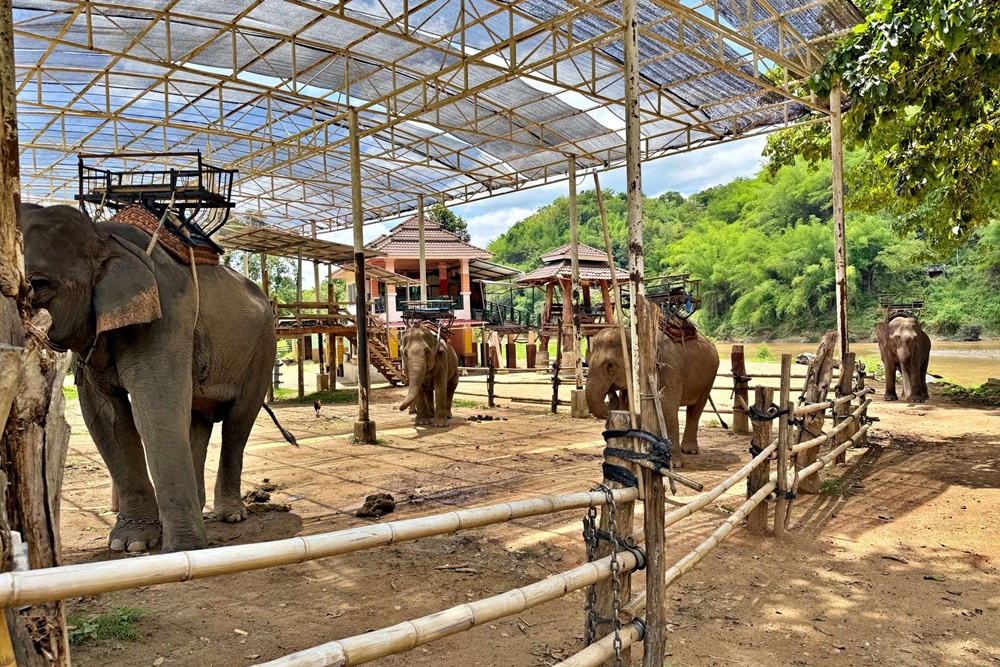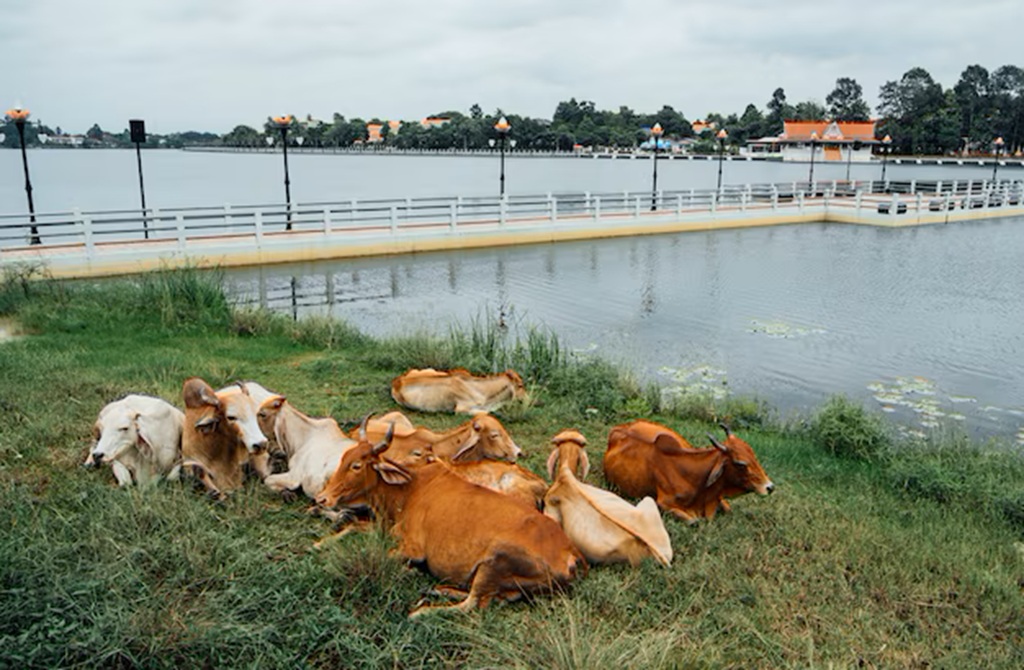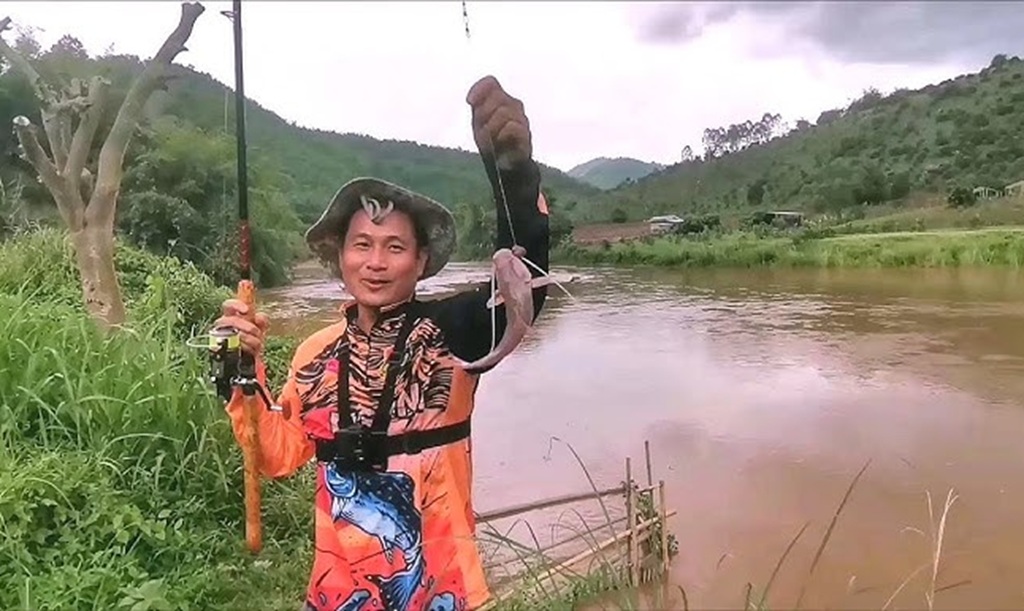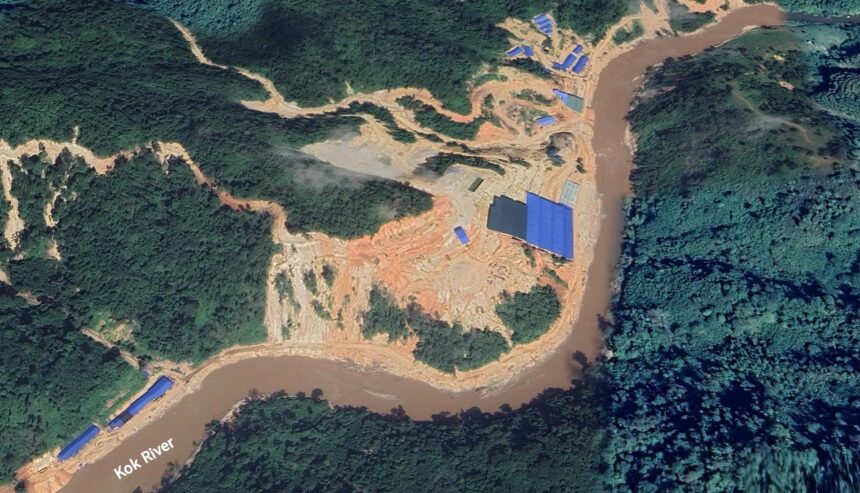CHIANG RAI – The Kok-Sai-Ruak-Mekong River Protection People’s Network has issued a statement calling on Thai government agencies to disclose information related to mining activities in the Wa State in Myanmar.
The protection network statement comes after inspections by the Pollution Control Department, and reports from the Mekong River Commission (MRC) confirmed heavy metal contamination in the Kok, Ruak, and Mekong rivers, with levels exceeding legally regulated levels in some areas. The report reflects the fragility of border river basin ecosystems and the need to disclose cross-border trade data related to mining operations.
Initial findings show that the Kok River has been contaminated with hazardous substances from gold and rare earth mining activities in Southern Wa State, Shan State, Myanmar. This pollution has spread along the river and affected tourism, farming and fishing in areas from Chiang Mai through to Chiang Rai, causing economic losses estimated at more than 1.3 billion baht each year.
This issue began when toxic substances believed to have come from mines near the river’s source, about 30-40 kilometres from Mae Ai district in Chiang Mai, entered the Kok River. Since early 2024, contamination has flowed downstream, impacting people and communities living along the river until it joins the Mekong.
An independent online media group, Lanner, made up of former social activists and NGO workers, compiled data to assess the economic damage if the Kok River becomes unusable. Their report points to significant loss across three main sectors: tourism, agriculture and fisheries in 20 communities bordering the river. The total estimated loss reaches 1,300,006,731 baht per year.

Tourism
Tourism suffers the highest blow, with yearly losses topping 773 million baht. Using data from the Tourism Research and Development Centre (CTRD) and surveys of businesses within three kilometres of the river in both Chiang Rai and Chiang Mai, Lanner measured the impact by looking at hotel occupancy, tourist spending on local accommodation, and direct links between tourists and the river.
The accommodation sector, including hotels and resorts by the Kok River, faces a loss of 669 million baht a year. River-related tourism, like boat tours, raft trips and elephant rides, brings in another 104 million baht in damages.
In total, Chiang Rai has 109 riverside accommodation businesses, about 16.4% of all such businesses in the province, while Chiang Mai has 13, or just over 1%. These places alone lose more than 669 million baht every year if the river cannot be used.
For businesses offering river activities, there are 30 long-tail boats on popular routes like Chiang Rai to Ban Ruam Mit, four operators with a combined fleet of about 40 wet rafts, and nine elephants available for rides from Ban Ruam Mit Karen village. Annual losses for these activities total more than 104 million baht if services stop.

Agricuture
Agriculture comes next, with estimated losses reaching over 511 million baht a year. Farmland along the Kok River would be unusable for irrigation, severely affecting crop production. Land data shows that the river runs through 20 subdistricts, covering about 1.3 million rai, with 131,607 rai within three kilometres of the river counted as high risk.
Of this, 78.97% is rice farming (about 103,924 rai), while the rest is for maize (27,682 rai). According to the 2025 average crop prices reported by the Chiang Rai Provincial Agriculture Office, rice is valued at 4,496 baht per rai and maize at 1,597 baht per rai. If farmers cannot use river water for a full year, total losses in the farming sector could reach 511 million baht.

Fisheries
Fisheries, another key livelihood along the river, would lose over 15 million baht per year. Interviews with affected residents counted 105 fishers who depend on the Kok River, fishing around 51 days each season with an average catch of 11.5 kilograms a day.
The average market price for fish is 244 baht per kilogram. If the river becomes unsafe, these fishers will lose all income for the season.
Altogether, if the Kok River is unfit for use by all three sectors for one full year, damages would total about 1.3 billion baht. This figure does not include broader long-term effects such as job losses, people moving away for work, or declining quality of life for local communities.
This assessment assumes the river is completely unusable for any economic activity throughout the year. Lanner hopes the findings encourage more vigilance from the authorities about water quality in key rivers in Northern Thailand.














